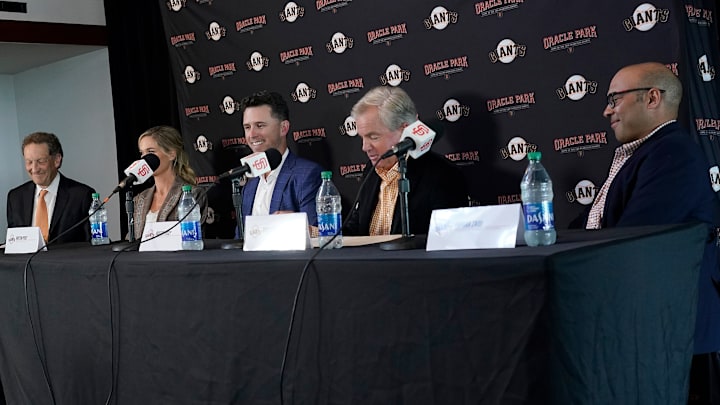There are reasons to criticize any team. Whether it be the ownership, the front office, or how the team performs on the field. This is, of course, true of the SF Giants as well. However, there is one area where it is tough to criticize them and it is with respect to how they handle arbitration.
When it comes to arbitration, the SF Giants do it right
Teams and players have been going through arbitration this week. Arbitration is a process whereby a team and player resolve to determine the player's salary for the upcoming year. Often, the player and his representatives will request a higher number than the team is willing to offer.
Typically, the team and player meet in the middle to agree to a salary for the upcoming year without much tension. However, more and more teams have been following a file-and-trial approach where if a team cannot come to an agreement with a player by a certain deadline, then they will go to arbitration.
In arbitration, the player and team will make a case as to why the player should earn a specific salary. By the end of it, a third-party arbiter will pick one side or the other.
It is an absolutely terrible process and one that teams try to leverage to further take advantage of the rookie contracts. It is no secret in baseball that the rookie contracts are some of the best bargains in sports.
For example, Tim Lincecum was a pre-arbitration player in 2008 and 2009, meaning that he was making at or near the league minimum. He had no influence but to accept what the team offered. Every team has a different process for calculating pre-arbitration salaries, but those salaries are usually close to the league minimum.
Of course, Lincecum took home the NL Cy Young award in both of those seasons. His production, or market value, far exceeded what he was being paid. Sure, the Lincecum example is one of the more extreme examples but it happens every year when a player outperforms the expectations of his contract.
Logan Webb is more recent example. Over the past couple of seasons, he has been one of the better pitchers in the league. However, he has been earning just above the league minimum in those seasons. The righty is set to receive a $4.6 million salary in his first season as an arbitration-eligible player, but he likely will continue to outperform the contract.
It is not fair but that is just how the rookie contracts go. Ownehership is unwilling to change the rookie contracts because there is not incentive to do so. They are receiving a player's best years often at a steep discount.
At the very least, the Giants have done well to avoid the tension that comes with arbitration. They agreed to deals with every arbitration-eligible player over a month ago but that is not the case with every team.
For example, on Wednesday, Milwaukee Brewers star pitcher Corbin Burnes lost his case in arbitration. His representatives requested $10.75 million for 2023, whereas the team countered with $10 million.
This is a difference of $750,000. Burnes' production on the field far exceeds $10 million. However, the Brewers won the case and saved $750,000 million in the process. It is so, so, so, so tacky for a billion-dollar franchise to nickel and dime their players.
This will not affect the Brewers in the long run because they will not be re-signing Burnes once he becomes a free agent. More than likely, he will be traded beforehand. However, losing his arbitration case clearly left a bitter taste in his mouth.
Every fear that going to an arbitration hearing against Corbin Burnes could harm his relationship with the Brewers was founded.
— Adam McCalvy (@AdamMcCalvy) February 16, 2023
“There’s no denying that the relationship is definitely hurt from what [transpired],” Burnes said. pic.twitter.com/Xv8DFyiKde
Players have such a limited window to make money in baseball. The Carlos Correas and Aaron Judges of the world are outliers in terms of earning lucrative contracts.
The Giants have rarely gotten to this point with players. Over the last 20 years, they have gone to arbitration twice - A.J. Pierzynski and Donovan Solano. Pierzynski won his case, whereas the Giants defeated Solano in arbitration.
The difference in salary for Solano was $650,000. Surprisingly, they could not agree on a midpoint. They deserve criticism for that, but this has been such a rare circumstance over the past two decades.
I can understand why teams are motivated to control costs as much as possible. That said, just take care of the player. Other teams and players will notice. It may not change anything, but you earn some goodwill, which is far better than arguing with a star pitcher over $750,000.
